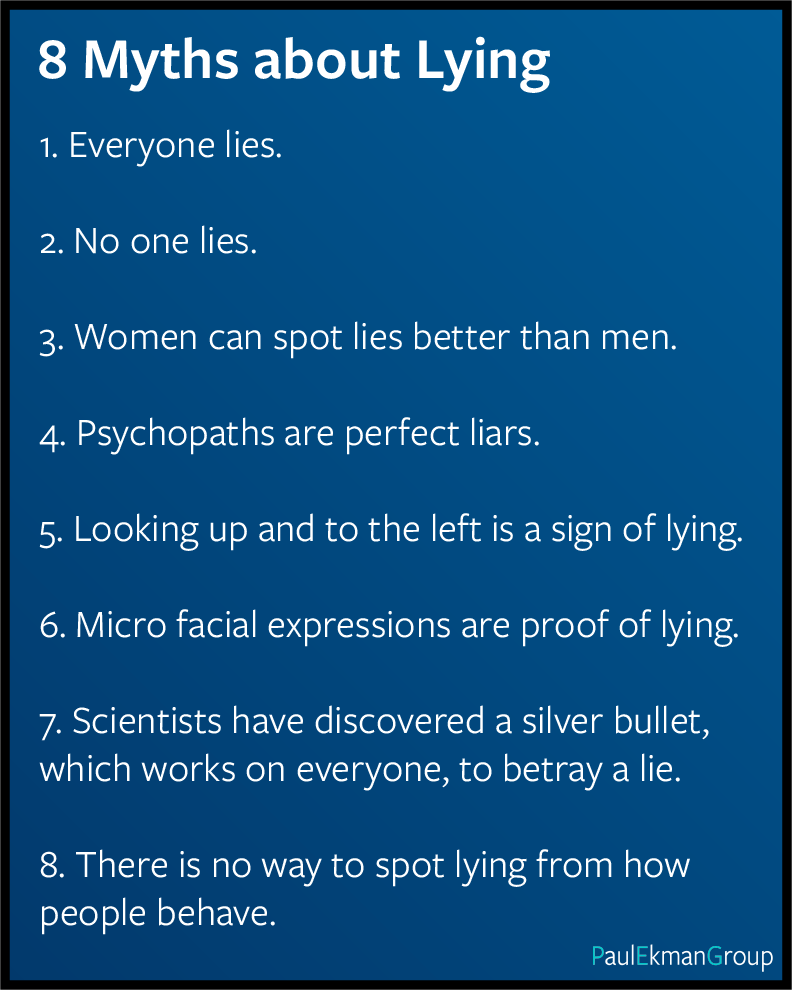October, 2009 Feeling Guilty Why do lies fail? I asked people “If you could be absolutely certain that your lover would never find out, would you have a one-night stand with a very attractive person?” About half said “no”. They didn’t differ from those who said “yes” (that they would cheat) in whether they were married or single, if married, … Read More
Spotting Poker Bluffs
Can you tell when someone is bluffing?
May 2014 The game has changed now that TV broadcasts people playing poker In the old days not a word was spoken, and that tradition continues today in some venues. But lies had to be spotted; bluffs called. I learned about this from winners of the International Poker Tournament held each year in Las Vegas. It costs $15,000 to enter … Read More
8 Myths about Lying
Lying facts and fiction
June 8, 2015 by Paul Ekman, Ph.D. as featured on Forbes. Myth #1 – Everyone lies. Not so. Not about serious matters, not about lies which if caught could result in the end of a relationship, employment, freedom, large sums of money or life itself. Those are what I call high stake lies; they are the lies that the police … Read More
Why Do People Lie?
9 Motives for Telling Lies
Original excerpt from “Telling Lies” (p. 329-330) September 26, 2018 Reading between the lies Why do people lie? Such a simple question should come with a simple answer (but doesn’t, unfortunately). There are indications, however, that most of us share the same the motives for telling lies. Numbers don’t lie My data collected during interviews with children and from questionnaires completed by adults suggests that telling … Read More
My Six Discoveries
One scientist. Six discoveries. Fifty-five years in the making.
August 1, 2017 Number 1: Nonverbal behaviors provide accurate information. And it is not obscure; most people can derive at least some of that information with no trouble. It may be surprising now, but the general consensus when I started my research was that judgments based on facial expression and bodily movements were at best a source of stereotypes. Clinicians … Read More





